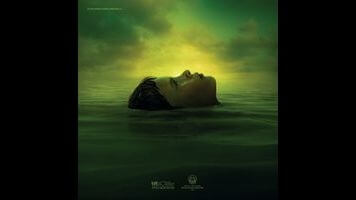A dormant director finally returns with the intoxicatingly strange Evolution

For cinephiles who prize mysterious, forbidding atmosphere over a straightforward narrative, it’s been a long wait for Lucile Hadzihalilovic’s second feature. Her gorgeous debut, Innocence, played the festival circuit in 2004 (and got a tiny U.S. release the following year); viewers who’d read that she’s creatively involved with Gaspar Noé (Irreversible, Enter The Void), and braced themselves for something similarly confrontational, were instead treated to an uncommonly delicate coming-of-age allegory set in a very odd girls’ boarding school. Hadzihalilovic’s formal precision in that film, combined with the quietly outré choice of material (it was adapted from a 1903 novella by Frank Wedekind), was impressive enough to inspire intense curiosity about what she’d do next. For over a decade, though, what she did next was nothing. So it was cause for celebration when Evolution finally turned up, and a great relief to discover that her penchant for cryptic, otherworldly beauty—tinged, this time around, with the creepily grotesque—remains very much intact.
An original work co-written with Alanté Kavaïté (The Summer Of Sangaile) and Geoff Cox, Evolution is much more aggressively bizarre than Innocence, to the point where it arguably qualifies as science fiction (or at least horror-fantasy). Nothing gets explained, and there’s no way to know—though a possible hint can be found in the ambiguous final shot—whether the small, picturesque seaside village in which the film is set reflects the rest of the world, or even which world this is. Hadzihalilovic doles out the unusual demographics and customs one confounding piece at a time. Our point of entry is Nicolas (Max Brebant), a boy of about 10 who lives alone with his mother (Julie-Marie Parmentier) and spends his time either drawing or diving in the ocean. Early on, combing the bottom, he thinks he sees the waterlogged corpse of another boy. His mother assures him that he imagined it, but there’s definitely something strange going on in this village, where all of the children are male, but there are no adult men to be found anywhere—just mothers and their barely prepubescent sons. What’s more, Mom keeps taking Nicolas to a disturbingly dilapidated hospital (or is it a factory?), where an all-female staff of doctors and nurses perform unexplained operations on the boys, along with what appears to be… amniocentesis?
Evolution just gets weirder from there, but trying to determine what the film’s unique take on human (?) biology “means” is likely a fool’s errand. Hadzihalilovic has repeatedly said that she intends no particular interpretation and merely wanted to explore some nightmarish imagery, leaving the implications open. Nonetheless, there are clear affinities with Innocence that go beyond both films’ overwhelming emphasis on mood. Like the teachers in the earlier film (all of whom are also female; one is played by a pre-Oscar Marion Cotillard), the mothers, if that’s in fact what they are, maintain a certain aloof distance from the children and seem to inhabit a parallel universe that the kids can’t comprehend. Nor is it likely a coincidence that the children in both films are on the cusp of adolescence, isolated throughout from the opposite gender. To watch Hadzihalilovic’s films is to be reminded that life itself is a deeply perplexing mystery—that we’re all born into rigidly stratified societies, laden with inexplicable rules and run by people whose minds we can’t access. Evolution is the sort of film that doesn’t require you to “turn off” your mind, but does ask that you surrender certain expectations. Most of all, this is a vision that no other director would have imbued with such a potent amalgam of tender and twisted. It’s a pleasure to have her back.